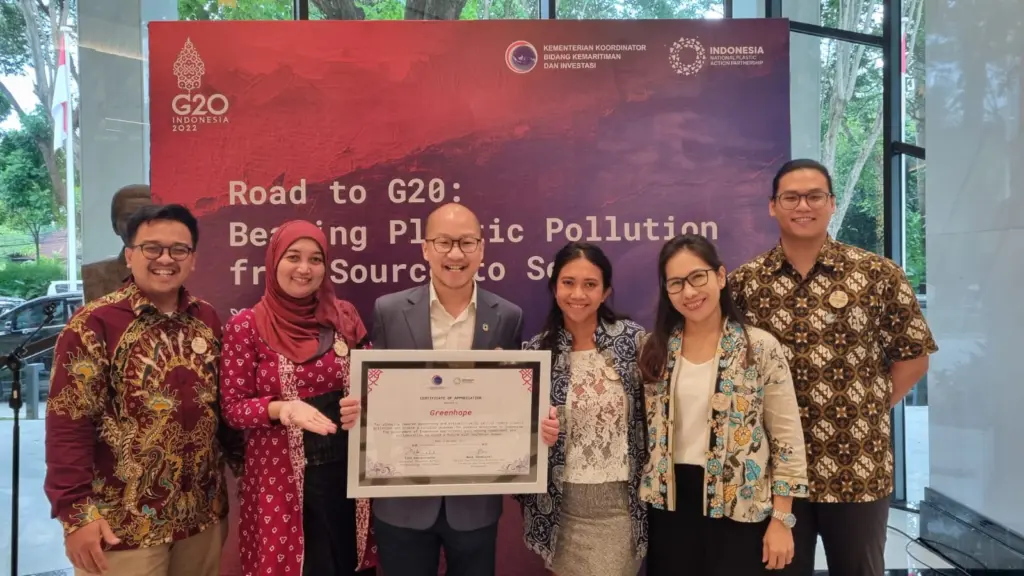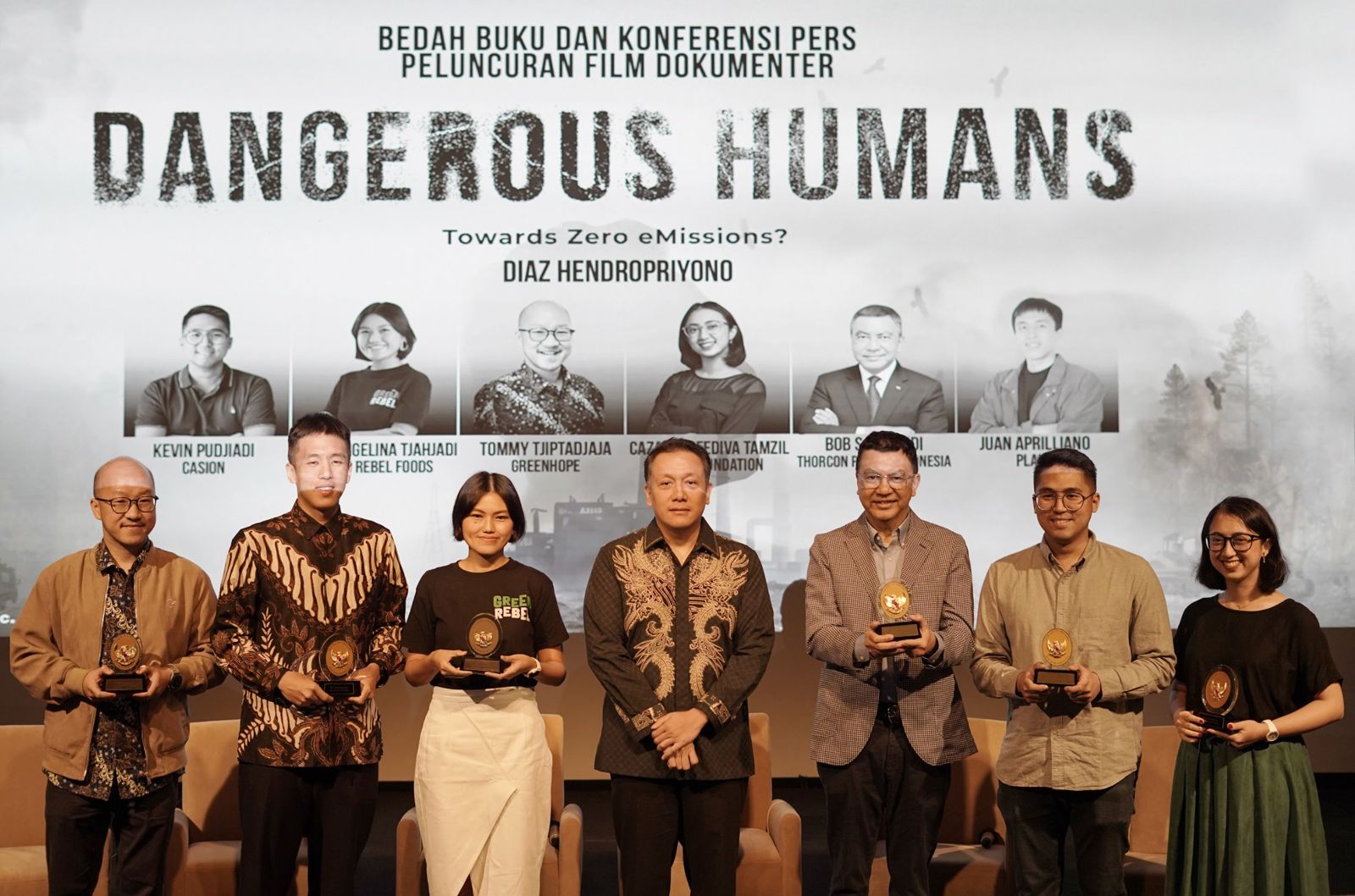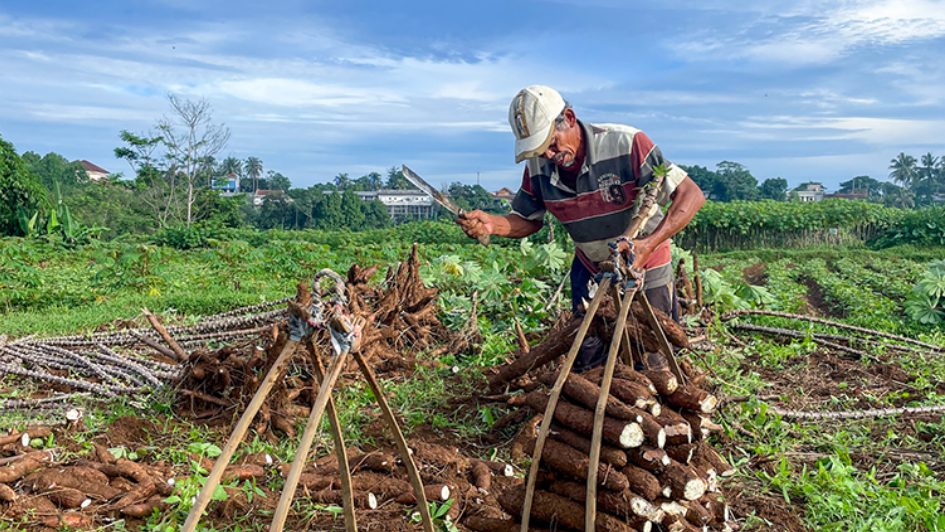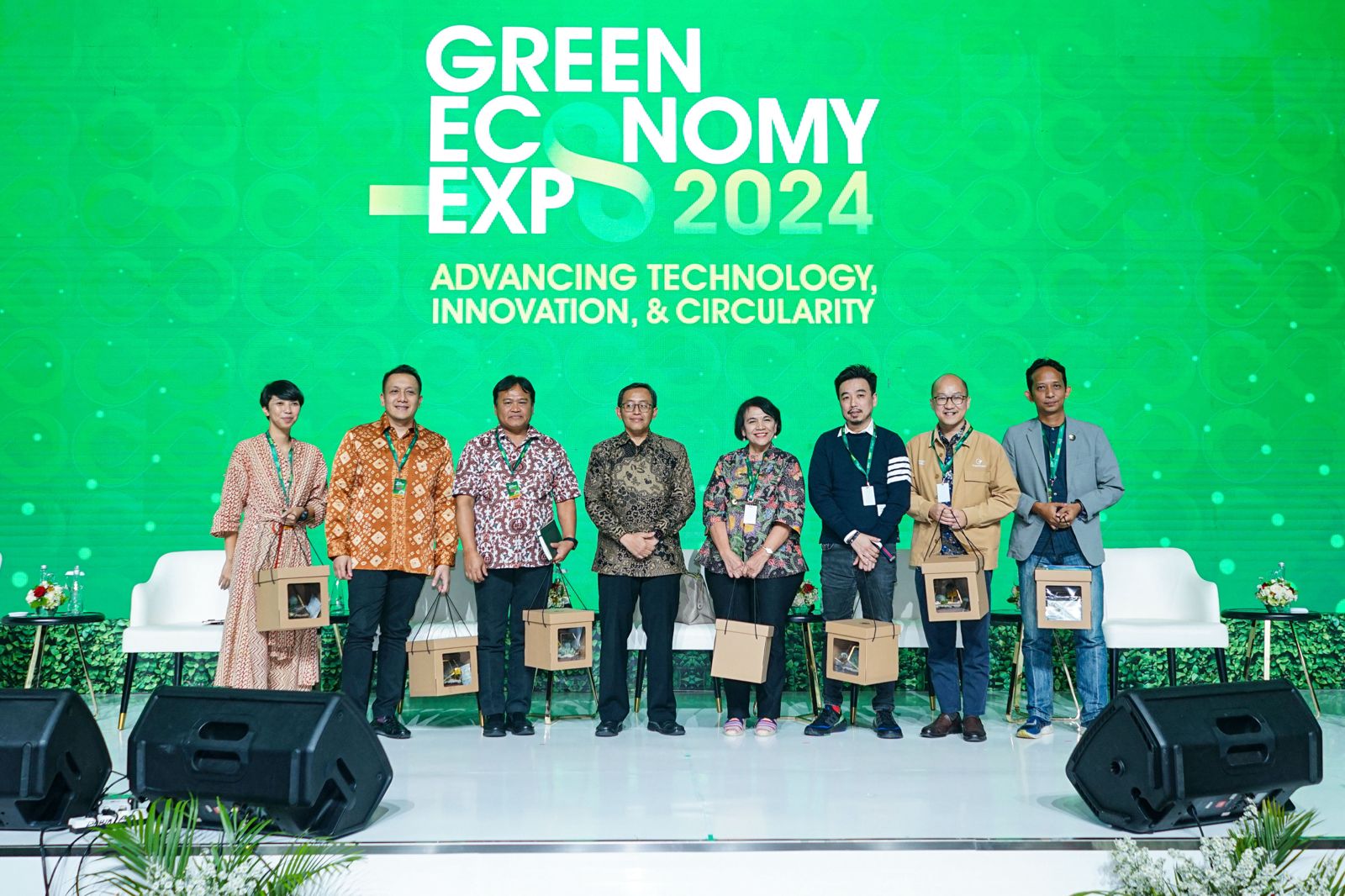What’S The Secret Ingredient To Solving Our Plastic Waste Problem?
Tuesday, 22 November 2022
Technology that transforms cassava into compostable plastic and a new system to turn trash into cash. These are just some of the winning business solutions presented at this year’s Plastics Innovation Hub Indonesia Demo Day as part of the road to G20.
Start-ups mentored through CSIRO’s Plastics Innovation Hub Indonesia cooked up an unlikely response in solving our plastic waste problem – cassava.
This prize-winning solution came from team Greenhope, an Indonesian start-up developing new technology that transforms cassava into biodegradable bioplastic.
Gathering at Demo Day as part of the Road to G20 in Bali, Greenhope were one of eight teams engaged in the Accelerator program, empowering environmental innovators to change plastic problems into real world solutions.
This work in supporting environmental entrepreneurs throughout the Indo-Pacific forms part of CSIRO’s Ending Plastic Waste Mission, which is working towards an 80 per cent reduction in plastic waste entering the environment by 2030.
In the lead up to Demo Day, innovators were asked to respond to three key challenges:
-
Find sustainable alternatives that outperform existing plastics
-
Improve plastics and capture value beyond first use
-
Empower decision making through reliable and accessible information
Let’s take a look at the top three winners…
USING CASSAVA AS A CATALYST FOR CHANGE
Since their venture started Greenhope has improved the livelihoods of over 179 cassava farmers and has successfully replaced 12 billion pieces of conventical plastic through their biodegradable cassava-based plastic.
Peter Tandio, Greenhope representative says the company is now focused on scaling-up through partnerships.
“We envision a future filled with collaboration because there is no single solution for a systemic problem like plastic pollution. Greenhope is now ready and willing to call upon partners to join us in implementing four R’s – Reduce, Reuse, Recycle, Return to Earth by using more plant-based compostable plastics.”
TURNING TRASH INTO CASH
Coming in close at second place was Geo Trash Management (GTM), who have created a new market for plastics and rubber, previously deemed unrecyclable by conventional methods.
Through revolutionising collection facilities and waste processing capabilities as well as creating a more comprehensive cash back system for waste, GTM have helped Indonesian waste pickers expand their earnings.
Andrew Sinclair, company Director said CSIRO’s Accelerator program has been instrumental in helping GTM refine its business.
“We are all extremely grateful for the support and teaching from the CSIRO mentors who have given us fantastic new connections with like-minded innovators, partnership connections and the potential to gather resources we need to carry out our mission.”
TECH THAT TRANSFORMS THE LIVES OF WASTE COLLECTORS
In third place is Duitin, a mobile recycling app that transforms the way waste is sorted while simultaneously creating better conditions for Indonesian waste pickers.
Jennifer Foster, Duitin representative said she hopes the app will lead to culture change in Indonesia where recycling can become habitual. She also hopes the app can create a greater appreciation of the invaluable work of waste pickers.
“Duitin’s vision is to encourage future generations to start recycling their waste and to ensure the 3.7 million waste pickers in Indonesia are no longer marginalised but are appreciated and given better opportunities.”
All pitching teams at Demo Day will now have the opportunity to access up to $300,000 worth of funding to scale their sustainable solutions.
The Plastics Innovation Hub Indonesia is partnership between:
-
Australia’s national science agency, CSIRO
-
The Department of Foreign Affairs and Trade (DFAT)
-
Indonesia’s Ministry of Education, Culture, Research and Technology (Kedaireka)
-
Indonesia’s National Plastics Action Partnership (NPAP)



